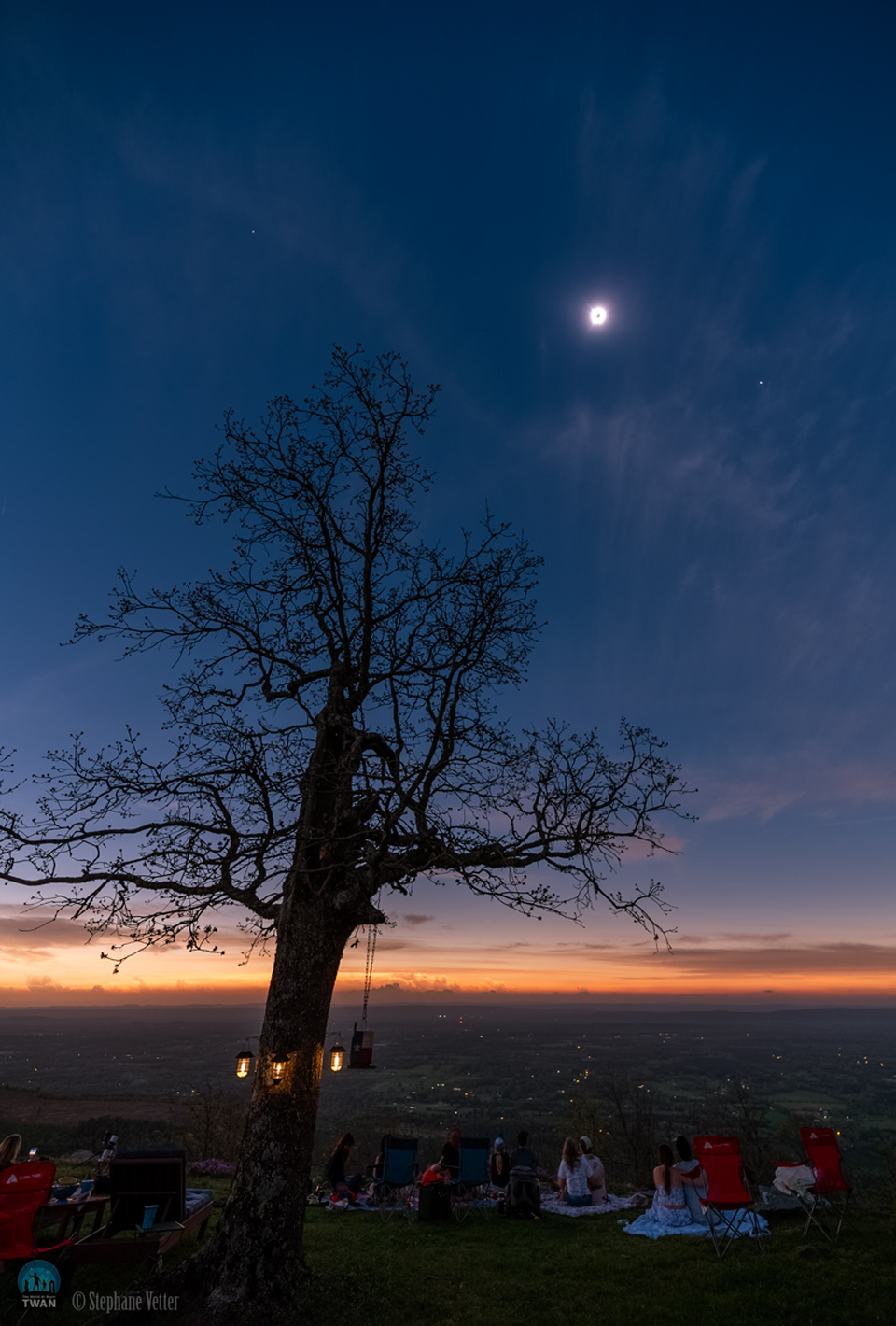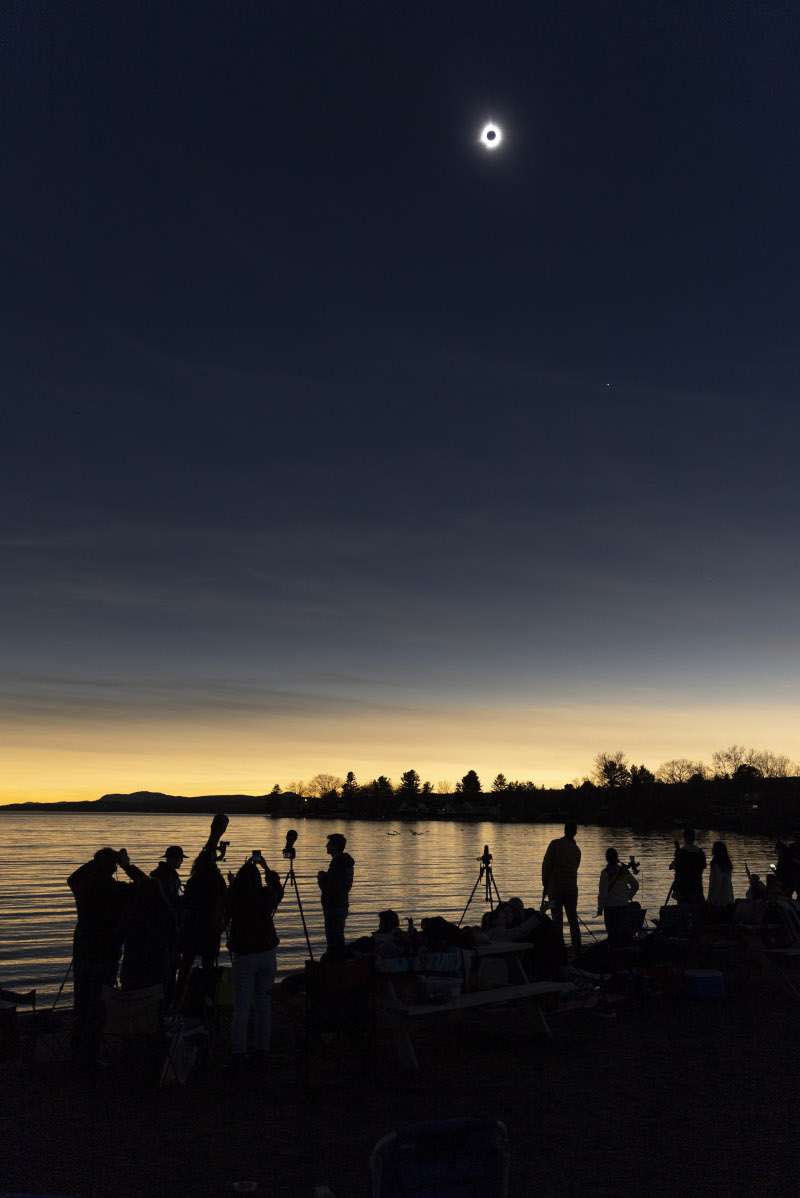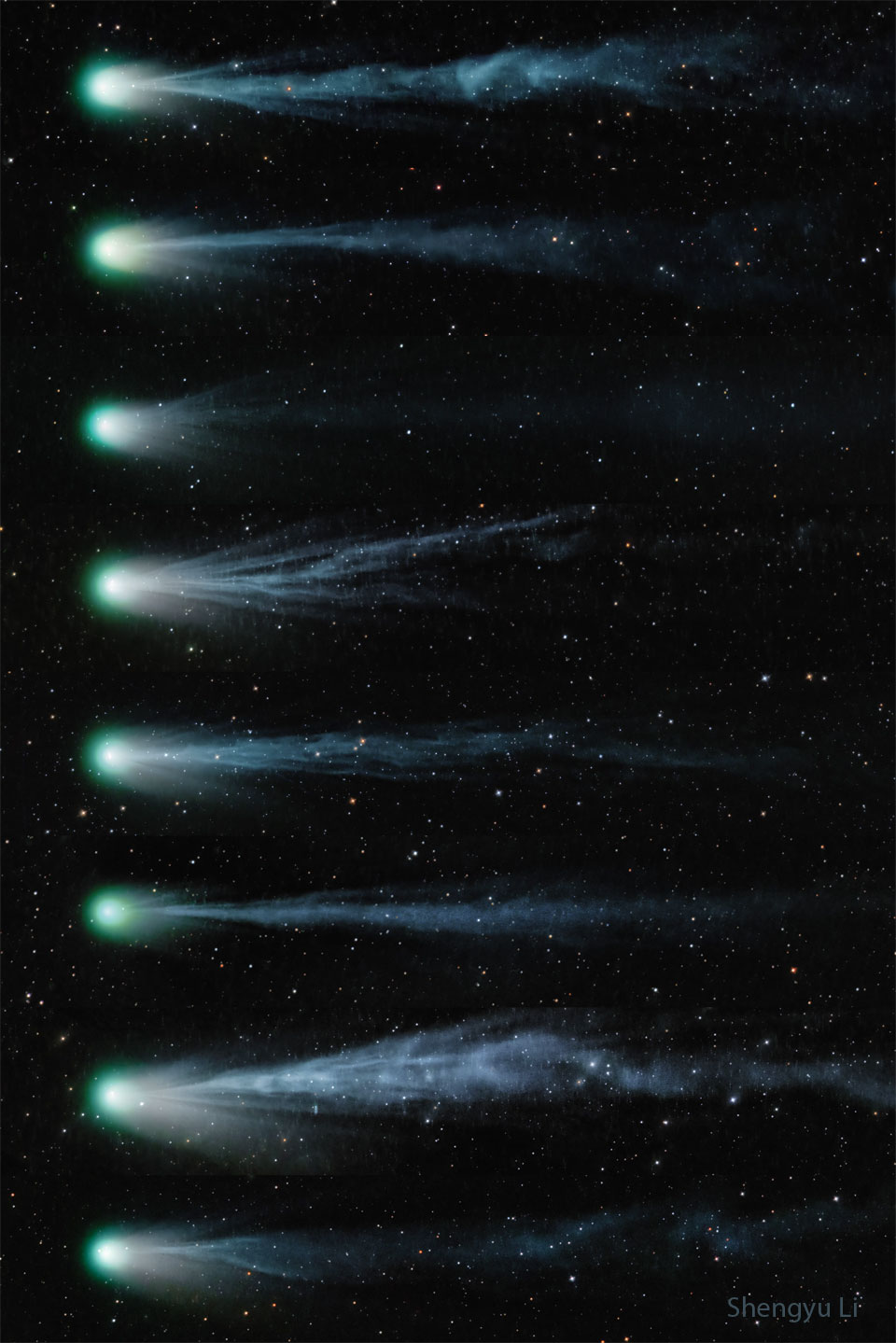
Nombre total de pages vues
10/04/2024
SANTé/MEDECINE - HISTOIRE - 1906 : découverte de la maladie d'Alzheimer

SANTé/MEDECINE - Le fonctionnement de l'oeil humain - Mouvements de l'œil et nerf optique

ASTRONOMY - Planets Around a Total Eclipse
2024 April 10
Image Credit: Stéphane Vetter (Nuits sacrées)
Explanation: What wonders appear when the Moon blocks the Sun? For many eager observers of Monday’s total eclipse of the Sun, the suddenly dark sky included the expected corona and two (perhaps surprise) planets: Venus and Jupiter. Normally, in recent days, Venus is visible only in the morning when the Sun and Jupiter are below the horizon, while Jupiter appears bright only in the evening. On Monday, though, for well-placed observers, both planets became easily visible during the day right in line with the totally eclipsed Sun. This line was captured Monday afternoon in the featured image from Mount Nebo, Arkansas, USA, along with a line of curious observers — and a picturesque tree.
09/04/2024
INVENTEURS TUéS PAR LEURS CREATIONS - Marie Curie

SANTé/MEDECINE - HISTOIRE - 1896 : invention du tensiomètre par Rocci

SANTé/MEDECINE - Le fonctionnement de l'oeil humain - Le fond de l'oeil

ASTRONOMY - Moon's Shadow over Lake Magog
2024 April 9
Image Credit & Copyright: Stan Honda
Explanation: Captured in this snapshot, the shadow of the Moon came to Lake Magog, Quebec, North America, planet Earth on April 8. For the lakeside eclipse chasers, the much anticipated total solar eclipse was a spectacle to behold in briefly dark, but clear skies. Of course Lake Magog was one of the last places to be visited by the Moon's shadow. The narrow path of totality for the 2024 total solar eclipse swept from Mexico's Pacific Coast north and eastward through the US and Canada. But a partial eclipse was visible across the entire North American continent.
08/04/2024
SANTé/MEDECINE - Le fonctionnement de l'oeil humain - La pupille
ASTRONOMY - The Changing Ion Tail of Comet Pons-Brooks
2024 April 8
Image Credit & Copyright: Shengyu Li & Shaining
Explanation: How does a comet tail change? It depends on the comet. The ion tail of Comet 12P/Pons–Brooks has been changing markedly, as detailed in the featured image sequenced over nine days from March 6 to 14 (top to bottom). On some days, the comet's ion tail was relatively long and complex, but not every day. Reasons for tail changes include the rate of ejection of material from the comet's nucleus, the strength and complexity of the passing solar wind, and the rotation rate of the comet. Over the course of a week, apparent changes even include a change of perspective from the Earth. In general, a comet's ion tail will point away from the Sun, as gas expelled is pushed out by the Sun's wind. Today, Pons-Brooks may become a rare comet suddenly visible in the middle of the day for those able to see the Sun totally eclipsed by the Moon.
07/04/2024
SANTé/MEDECINE - Le fonctionnement de l'oeil humain - Le système lacrymal

ASTRONOMY - Andromeda and Sprites over Australia
2025 December 16 Andromeda and Sprites over Australia Image Credit & Copyright: JJ Rao Explanation: What’s happening over that tree? ...
-
2022 September 26 All the Water on Planet Earth Illustration Credit: Jack Cook, Adam Nieman, Woods Hole Oceanographic Institution ; Data ...
-
2025 May 11 The Surface of Venus from Venera 14 Image Credit: Soviet Planetary Exploration Program , Venera 14 ; Processing & Copyri...



